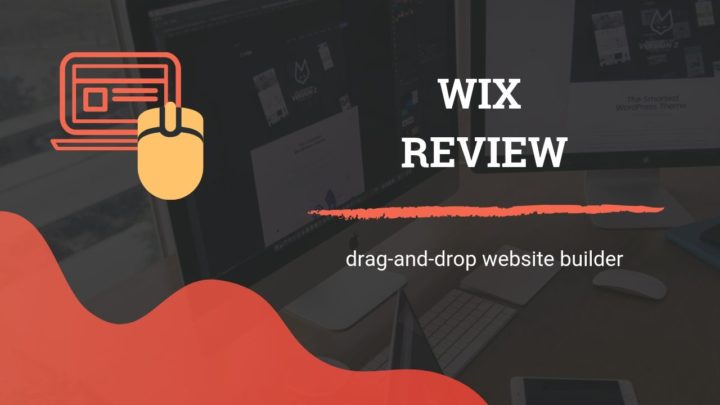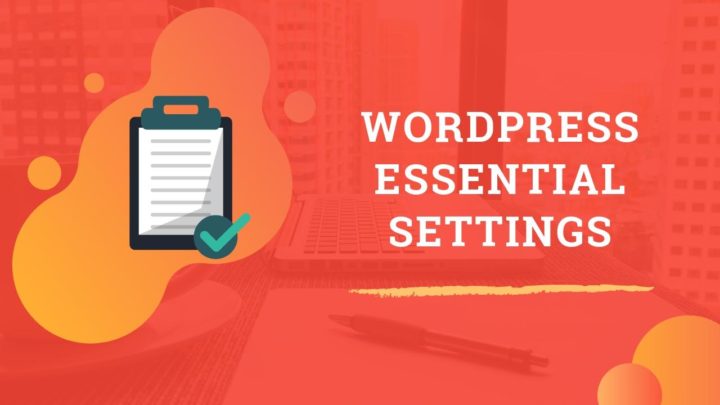This article may contain affiliate links. If you buy some products using those links, I may receive monetary benefits. See affiliate disclosure here
You need a website, but don’t have an idea of how to do it. Right? Maybe, you need a personal blog or a small business website, and you don’t want to hire a developer and prefer creating it yourself.
This article will give you a bird’s eye view of the whole process. I’ve tried to explain things in simple words so that any non-tech person can understand the concepts.
So, let’s start.
First of all, you have to know what constitutes a website. I prefer putting it like this:
- Domain name
- Platform
- Hosting
- Design
- Content
- Functionalities
In this article, we will discuss about the domain, platform, and hosting, because those are the minimum things required to get your site live on the internet.
Let us see how to choose the domain name first.
How to Choose a Domain Name: Things to Know
The domain name is going to be your website’s identity. So, there are a few things you should take care while picking it:
- The domain name should be memorable and brandable.
- Avoid confusing spellings
- Avoid using hyphens in between
- Keep it short, preferably less than 12 characters.
You can take three routes when picking a name:
- Invented words or phrases - eg., google.com
- Made-up phrase using English words - eg., facebook.com, quicksprout.com
- Phrase related to the website’s topic, ie., a keyword-based name - eg., problogger.com.
Although you cannot go wrong with any option, the first and second types are usually more memorable.
Searching a domain name
Often, the domain you wish to use may not be available if somebody else has already registered it.
Domainr is a free tool that helps to find domain availability quickly. It searches as you type, saving a lot of time.
Where to register a domain name?
Since you are purchasing your domain name for the first time, it is better to do it through your web host. Below, I will show you the same, and also how to get a domain name free for the first year.
Otherwise, you can also register it through a separate registrar like:
- Namecheap
- GoDaddy
- Google Domains
But, you yourself have to point it to your hosting account later in order to get it working. Also, if you plan to buy more than one domain, this option will be better.
Which Platform to Choose
After buying a domain name, the next step is to decide which platform is suitable for you.
Unless you want to hand-code a website from scratch, you will need a platform. It gives a foundation on which you can start creating web pages.
The choice of a website platform depends on two things:
- What type of website do you want to create? Is it a personal blog, an online store, a brochure website, or a content-oriented site?
- Do you want the platform to provide hosting along with it, or do you prefer choosing your web host yourself?
Type of Website Platform - What is its primary use?
Depending on the functionality, we can broadly classify the platforms in the following categories:
- Website builders
- Blogging platforms
- eCommerce platforms
- Content Management Systems (all-in-one & most powerful choice)
Now, some people might argue that you can use an eCommerce platform to run a blog, or you can run a blog using a website builder. Of course. The capabilities often overlap each other. That is not what we are discussing here.
Instead, each platform has a primary purpose for which it is designed. For example, if your website is primarily an online store, then a dedicated eCommerce platform like Shopify will be suitable.
In short, you should choose a website platform depending on your requirement.
Hosted vs. Self-hosted Platforms
It is a choice between comfort and control.
If you don’t want to bother about hosting at all, that’s when you choose a hosted platform. Shopify, Wix, Tumblr, etc. are examples.
You sign up on their website and they provide all the tools and environment to create a website. They also handle all the software updates and maintenance so that you don’t need to worry about security.
So, what is the downside of such platforms?
With a hosted platform, you cannot have complete control over your content. If the platform provider decides to suspend you, or if they shut down, your website will be gone.
On the other hand, self-hosted platforms only provide the software sans the environment. It is your job to find a host and install it. WordPress, Joomla, Magento, OpenCart, etc. are examples.
Although you have to manage the updates and maintenance, you get complete control over your content and data. You can even switch to a different host whenever you want.
So, which is the best self-hosted platform overall?
If you ask me, it is WordPress. According to the data from BuiltWith around 34% of websites on the entire internet runs on WordPress.
Why WordPress? There are a lot of reasons. However, I would like to point out a few:
- It is highly flexible. That means, you can create almost any website with it.
- Easiest to learn for beginners.
- Wide range of themes and extensions.
- Most web hosts offer one-click WordPress installation.
- Finding help and support won’t be a problem since there is a large community of WordPress users out there. You won’t find any difficulty in finding solutions to problems you ever come across.
That’s why I use it for this website as well as on most of the websites I manage.
How to Choose the Right Hosting Provider
If your choice is a hosted platform, then you don’t need this step.
Otherwise, your website needs a home or a data center to store its data. That’s what web hosting companies do. They provide a feasible way to host your website on a physical server.
Before that, you need to know about the different types of hosting available today:
- Shared Hosting
- Cloud Hosting
- VPS
- Dedicated
Out of these, Shared Hosting is the most beginner-friendly while VPS and Dedicated servers are usually complex to manage. Cloud hosting stands somewhere in between in terms of complexity.
Since you are a beginner, I suggest you go with a Shared Web Hosting, as it is the cheapest and easiest.
So, which is the best Shared hosting for your first website?
Picking a clear winner is difficult.
However, in my experience, Hostinger provides the most economical packages along with great performance and support. Their Linux servers offer great performance and uptime at an affordable cost.
Otherwise, cloud hosting is also a great option in the long term if you can spend a bit more. Since they are highly scalable, you don’t have to fear your site overgrowing the host.
Platforms like Cloudways, RunCloud, and ServerPilot make it easy to host your website on top cloud providers like DigitalOcean, Google Cloud, or Amazon AWS. Currently, this website is hosted on DigitalOcean using Cloudways.
Wrapping Up
With that, we have seen the important concepts in making a website. Now you have an idea about what a domain is, what platform to use, and how to host it.



